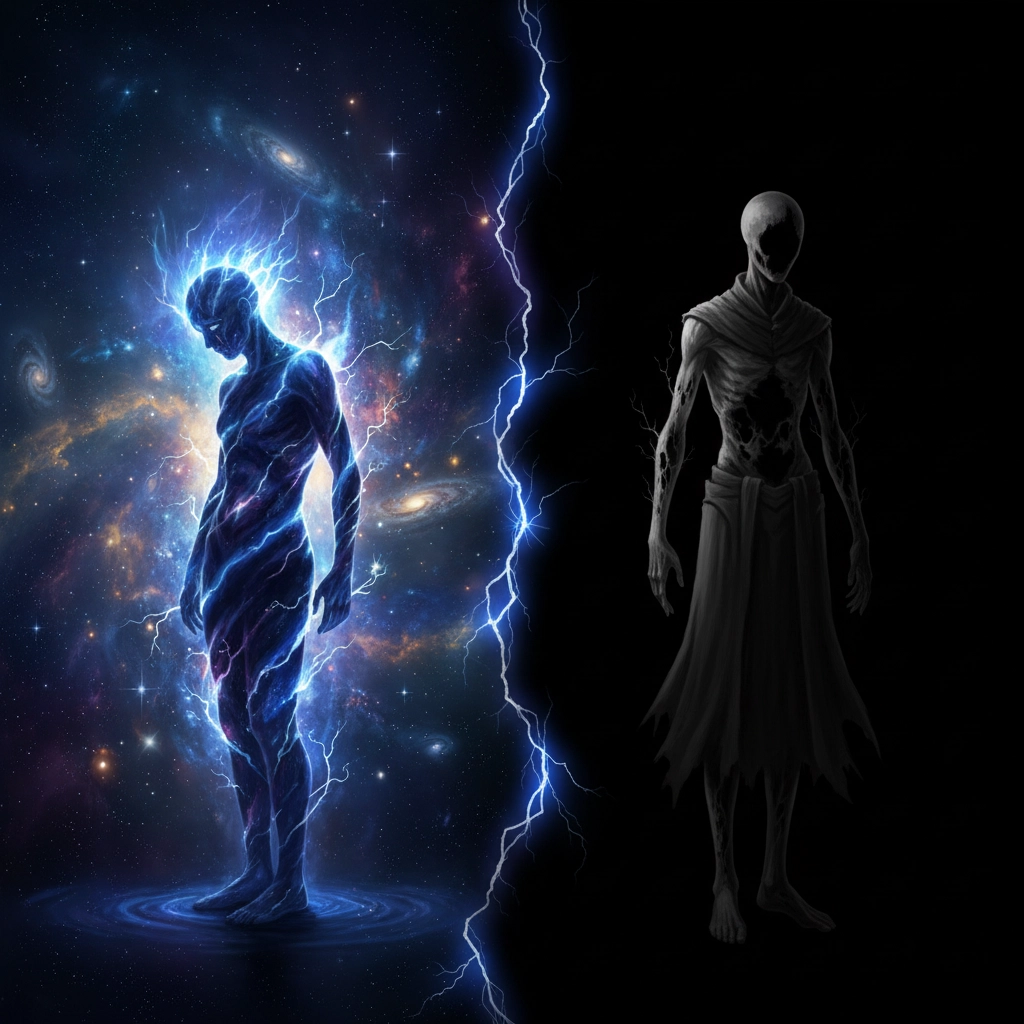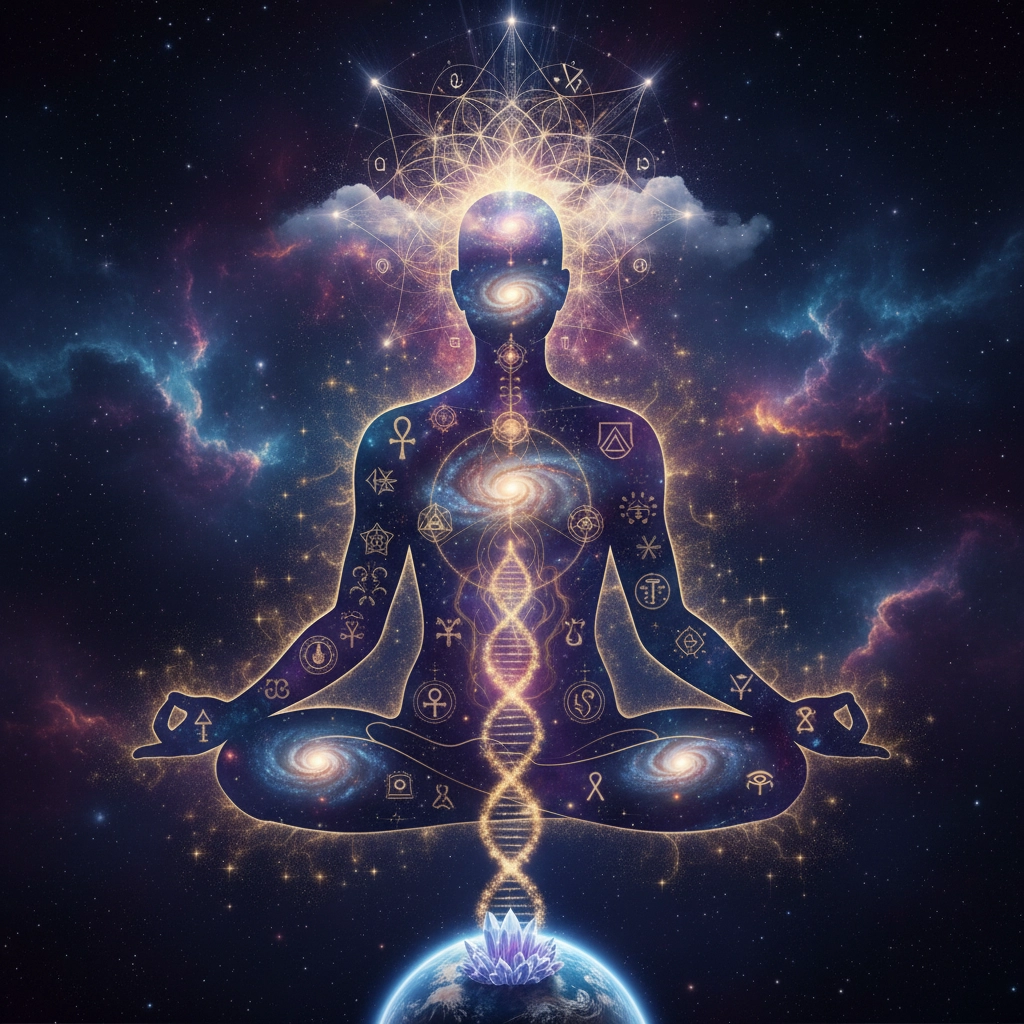Last month, I had three different clients ask me the same question: "Am I burning out, or is something deeper happening to me?"
Each one described eerily similar experiences, bone-deep exhaustion, feeling disconnected from their work, relationships that suddenly felt shallow, and an inexplicable urge to change everything about their lives. Sound familiar?
Here's the thing: burnout and spiritual awakening can look almost identical on the surface. Both leave you feeling drained, restless, and questioning everything you thought you knew about yourself. But underneath, they're completely different processes requiring completely different responses.
One needs rest and boundaries. The other needs surrender and trust.
Getting this wrong can cost you months or even years of unnecessary suffering. So let's break it down.
The Quality of Your Exhaustion Tells the Story
When my grandmother used to read people, she'd always start with their energy. "Child," she'd say, "tired ain't always tired. Sometimes it's full. Sometimes it's empty. You got to know which one you dealing with."
Spiritual awakening exhaustion feels overwhelming and electric. You're tired, yes, but there's an intensity humming underneath: like your nervous system is processing more information than it ever has before. You might feel energetically drained, but there's still something vibrant and alive moving through you, even in the fatigue.
Burnout exhaustion feels hollow and depleted. It's the kind of tired that sleep doesn't fix because it's not really about your body: it's about your spirit. There's no electricity, no underlying current of transformation. Just emptiness.
I remember my own awakening period in my early thirties. I'd collapse into bed each night feeling like I'd run a marathon, but my dreams were vivid, my intuition was sharp, and even in my exhaustion, I felt more alive than I ever had. That's the paradox of awakening tiredness: you're simultaneously depleted and overflowing.
Burnout, on the other hand, leaves you numb. When I hit burnout in my corporate days, I couldn't even access my dreams. Everything felt flat, colorless, and meaningless.

How You Relate to Change Reveals Everything
Here's where it gets interesting. Both burnout and spiritual awakening make you want to change your life. But the quality of that desire is completely different.
During spiritual awakening, change feels inevitable and necessary, even when it terrifies you. There's a pull toward transformation that feels bigger than your fear. You might resist it, but deep down, you know you can't go back to who you were. The old version of your life suddenly feels too small, like trying to fit into clothes you've outgrown.
I've watched clients in awakening stages quit jobs they've worked decades to build, end relationships that looked perfect from the outside, or completely shift their spiritual practices: all because something inside them was evolving beyond their current circumstances.
Burnout makes change feel impossible, even when you desperately want it. You might have clear ideas about what needs to shift in your life, but you lack the energy or motivation to take action. Instead of feeling pulled toward transformation, you feel trapped by your circumstances. The desire for change exists, but it comes with a sense of helplessness.
During my burnout period, I spent months making lists of changes I wanted to make: new job, healthier boundaries, more spiritual practice: but I never acted on any of them. I was too emotionally depleted to take the first step.
Purpose: Present or Absent?
This one's crucial, and it's where many people get confused.
Spiritual awakening connects you to a sense of purpose that's bigger than yourself, even when you can't articulate what that purpose is yet. There's a knowing that what you're going through matters, that it's leading somewhere meaningful. You might feel lost in the details, but there's an underlying faith in the process.
When I was in the thick of my awakening, I couldn't explain to anyone why I was making the choices I was making. But I felt aligned with something ancient and true, even when it looked like chaos from the outside.
Burnout strips away your sense of purpose entirely. Work feels meaningless. Relationships feel empty. Even activities you used to enjoy feel pointless. There's no sense of being part of something larger: just a grinding awareness that you're going through the motions of a life that doesn't fit anymore.
The key difference is hope. Awakening carries hope, even in the darkest moments. Burnout feels hopeless.
What's Happening Beneath the Surface
During spiritual awakening, massive internal growth is happening, even when you feel chaotic and overwhelmed. Your consciousness is literally expanding, your intuitive abilities are developing, and your nervous system is recalibrating to handle more subtle energies. It's like spiritual puberty: awkward, intense, but ultimately transformative.
You might have experiences that don't fit your old worldview: synchronicities, prophetic dreams, sudden knowing about people or situations, or feeling energy in ways you never have before. Your ancestors might start showing up in dreams. You might suddenly understand cultural wisdom that never made sense before.
Burnout lacks this internal movement. Instead of growth, you experience stagnation. Your spiritual practices feel flat. Your intuition feels offline. Instead of expanding, you feel like you're contracting, becoming smaller and more isolated.

The Body Tells Different Stories
Spiritual awakening often comes with specific physical symptoms that feel connected to energy and consciousness expansion: crown tingling, pressure between your eyebrows, vibrating sensations, changes in sleep patterns, vivid dreams, or unexplained body aches as old energy patterns release.
I remember during my awakening, I'd get these shooting sensations up my spine during meditation, and my hands would get so hot I couldn't touch anything metal. My sleep patterns completely changed, but my dreams became incredibly meaningful and prophetic.
Burnout manifests as chronic stress symptoms without the energetic phenomena. Headaches from tension, digestive issues from anxiety, insomnia from an overactive mind, but no sense that these symptoms are part of a larger transformation. They just feel like your body breaking down from too much pressure.
So What Do You Do With This Information?
If you're experiencing spiritual awakening, your job is to support the process, not stop it. Get plenty of rest, but don't expect normal sleep patterns. Eat grounding foods. Spend time in nature. Work with someone who understands the territory: a spiritual mentor, energy healer, or therapist familiar with awakening processes.
Most importantly, trust the process, even when it feels overwhelming. Your job isn't to control or speed up your awakening: it's to create safe conditions for it to unfold naturally.
If you're experiencing burnout, you need active intervention. Set firmer boundaries. Take actual time off. Address the external stressors that are depleting you. Consider therapy to process the hopelessness and disconnection. Burnout won't resolve itself: it requires conscious changes to how you're living.
Remember: both experiences are valid and important parts of being human. Neither is "better" or "worse" than the other. They're simply different processes requiring different responses.
The key is knowing which one you're experiencing so you can respond appropriately. Your future self will thank you for the clarity.
If you're navigating either burnout or spiritual awakening and need support understanding what you're experiencing, ancestral healing work can provide clarity and guidance. Sometimes the wisdom we need is already within our lineage, waiting to be accessed.

